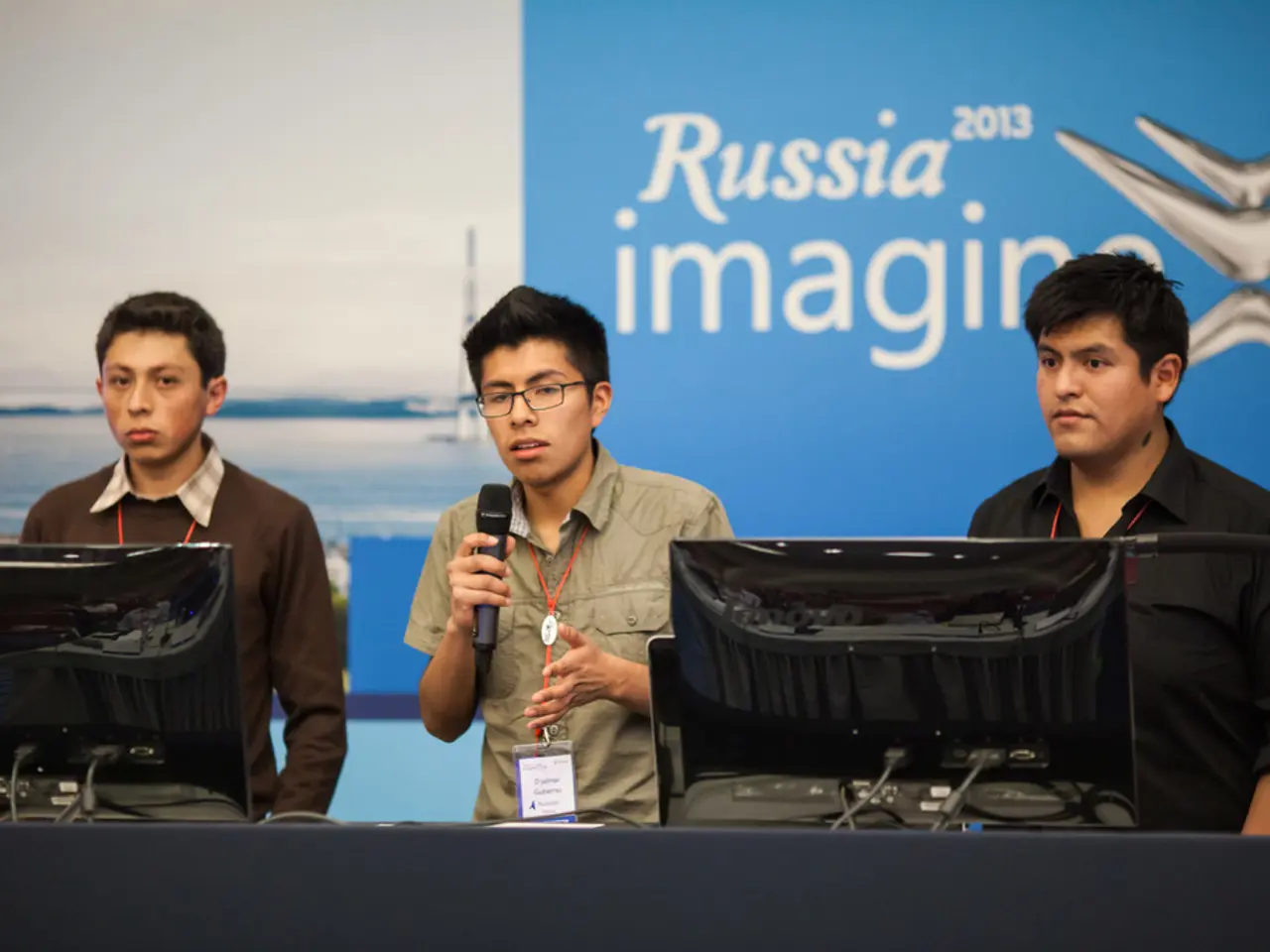Trump-Putin meeting classified as a "hazy encounter" by expert
In the coming days, US President Donald Trump and Kremlin chief Vladimir Putin are set to meet and discuss a potential peace plan for Ukraine. This summit, scheduled for Friday, has sparked a flurry of anticipation and apprehension, as experts weigh in on the possible outcomes and implications.
Standing Impasse at German Airports
Meanwhile, several aircraft that have been grounded due to EU sanctions against Russia have been parked at German airports for more than three years, serving as a stark reminder of the ongoing tension between the two nations.
Ukrainian Conflict: A Complex Web of Engagements and Casualties
The conflict in Ukraine remains a volatile situation, with reports of 137 engagements with the Russian army on Sunday alone. A recent bombing raid by the Ukrainian Air Force successfully targeted a Russian command center near Oleshky in an occupied area of Kherson, resulting in the deaths of 25 Russian soldiers and injuries to 11.
Expert Views: A Tentative Optimism
As the world watches, analysts offer a mixed bag of perspectives on the upcoming summit. Some are skeptical about its effectiveness, citing ongoing distrust and divergent goals as significant hurdles. Others express concern over the potential for the talks to be exploited by Putin, complicating negotiations or legitimizing Russian positions without meaningful compromises.
A more optimistic minority sees the possibility that direct talks could at least open channels for communication and temporarily de-escalate tensions or pave the way for humanitarian agreements. There is also apprehension about how such a summit might affect NATO and EU unity, especially if seen as sidelining these partners or the Ukrainian government itself.
Possible Outcomes: A Path Forward, or a Step Back?
If the summit succeeds, parties might agree on a ceasefire or pause in fighting to enable humanitarian access or prisoner exchanges. They could also outline steps for a broader peace plan, including issues like autonomy for certain regions or security guarantees. However, talks might also end without concrete agreements, simply reaffirming existing positions.
If perceived as concessions to Russia, the summit might provoke criticism or deepen divides among international allies. It's crucial to remember that substantive peace depends on complex, multi-party negotiations and sustained commitment beyond a single meeting.
Regional Support and Solidarity
As the world watches the unfolding events, various nations are expressing their support for Ukraine. The Nordic and Baltic states are pushing for the preservation of Ukraine's and Europe's interests, standing firmly by Ukraine's side. Lithuania has announced a military exercise in areas near the border with Belarus.
The Polish Prime Minister Donald Tusk demands the involvement of the Kyiv government in any talks about ending the Russian invasion of Ukraine. Azerbaijani President Ilham Aliyev has signed a decree providing the Azerbaijani Ministry of Energy with 2 million US dollars for humanitarian aid to Ukraine.
The Road Ahead: A Journey of Diplomacy and Dialogue
As the world holds its breath, the upcoming Trump-Putin summit on Ukraine's peace plan promises to be a pivotal moment. Experts urge caution, emphasizing that while dialogue is important, substantive peace depends on complex, multi-party negotiations and sustained commitment beyond a single meeting.
In the meantime, NATO Secretary-General Mark Rutte believes that future negotiations on a peace solution in the Ukraine war will likely involve discussions on the future of the Ukrainian territories controlled by Russia. Ukrainian President Volodymyr Zelensky calls for increased pressure on Russia, while the Ukrainian Ambassador to Germany, Oleksii Makeiev, emphasizes that it's not just about territorial questions—it's also about people.
As events unfold, the world will continue to watch closely, hoping for a peaceful resolution to the ongoing conflict in Ukraine.
- The discussion between US President Donald Trump and Kremlin chief Vladimir Putin regarding a potential peace plan for Ukraine, while raising anticipation and apprehension, could lead to the establishment of channels for communication and temporary de-escalation, or it might end without concrete agreements, simply reaffirming existing positions.
- As developments in the Ukraine-Russia conflict continue to dominate headlines, various nations, including Lithuania, Poland, and Azerbaijan, have expressed their support for Ukraine, with some taking measures like military exercises or humanitarian aid, emphasizing the importance of preserving Ukraine's and Europe's interests.







